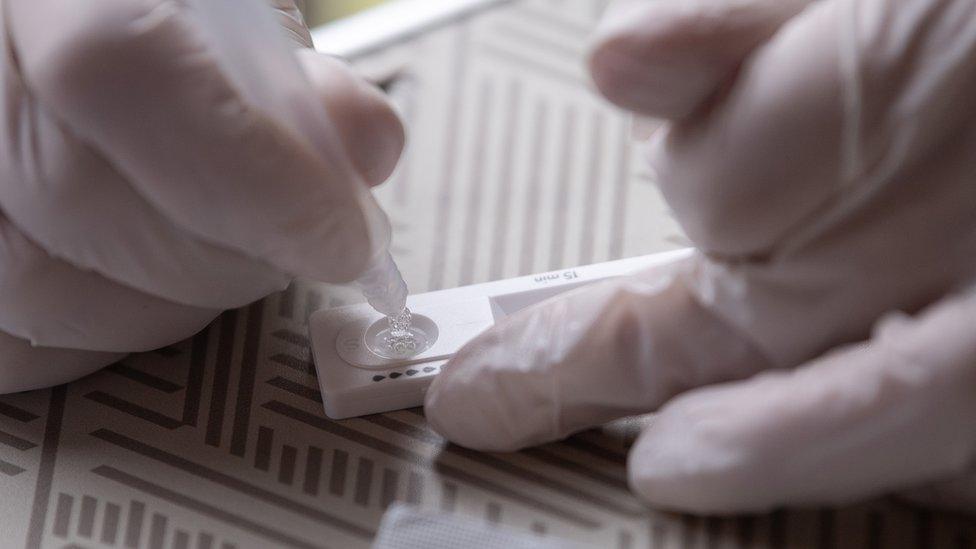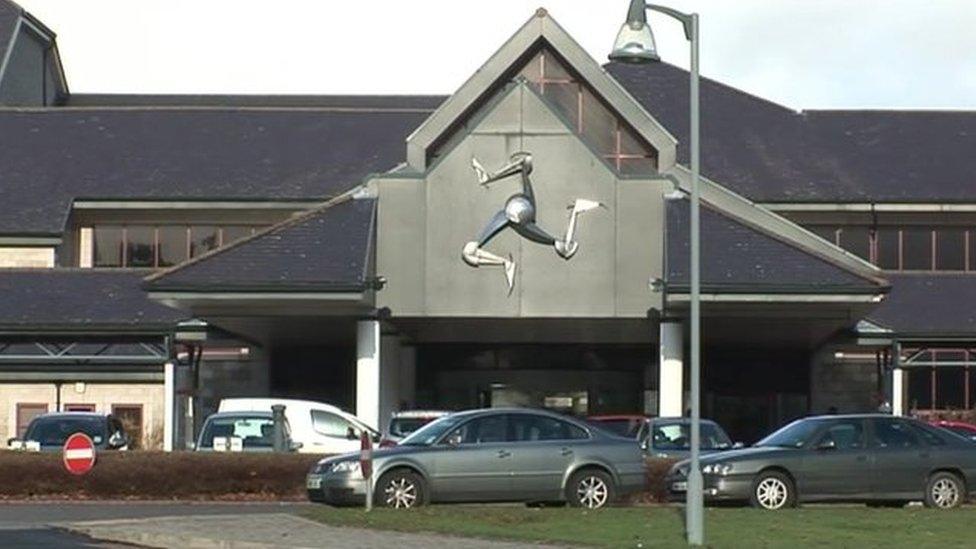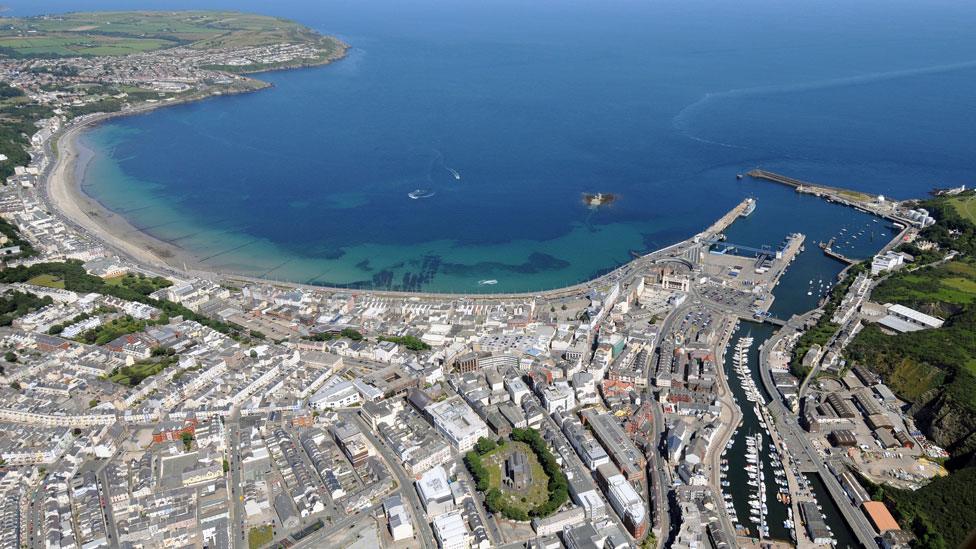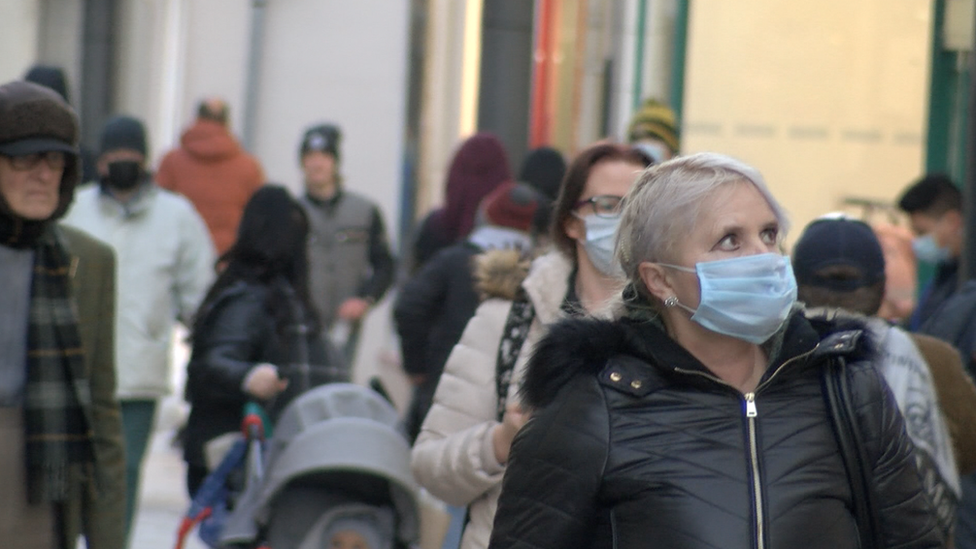Covid: Isle of Man isolation rules eased to stop 'indirect lockdown'
- Published

Daily lateral flow kits are being sent to close contacts who are not fully vaccinated
Mandatory isolation and testing for close contacts of positive Covid-19 cases was scrapped to prevent the Isle of Man being "indirectly" locked down, the chief minister has said.
Unvaccinated close contacts are now offered home lateral flow testing kits.
Howard Quayle said the previous policy had risked "thousands of people being locked away as a precaution".
The number of new infections has soared in recent days to 1,104 active cases, with three being treated in hospital.
About 77% of the island's adult population has now been fully vaccinated.
Answering an urgent question in Tynwald on Tuesday, Mr Quayle said as the island moved from a strategy of elimination to living with Covid-19, "the virus was always going to return and return in large numbers".
"We knew cases would grow and we knew that as a result close contacts would grow at a significant scale," he said.
The Council of Ministers had been "very concerned" that the impact of the number of people being placed in precautionary isolation was "unsustainable", Mr Quayle added.
On average, four close contacts were identified for each positive case.
Under the previous rules, the fully vaccinated were already exempt from precautionary isolation, however close contacts who had not had two jabs were subject to a mandatory isolation period, even if they recorded a negative result.
The new policy means those people are now being asked to carry out home testing over a seven day period instead.
More than 30,000 testing devices have already been handed out, however delivery delays to the island meant many pharmacies experienced shortages on Tuesday.
Stocks are expected to be replenished later.

Why not follow BBC Isle of Man on Facebook, external and Twitter, external? You can also send story ideas to northwest.newsonline@bbc.co.uk, external
- Published19 July 2021

- Published15 July 2021

- Published15 July 2021

- Published12 July 2021

- Published2 July 2021

- Published1 July 2021

- Published16 April 2021
